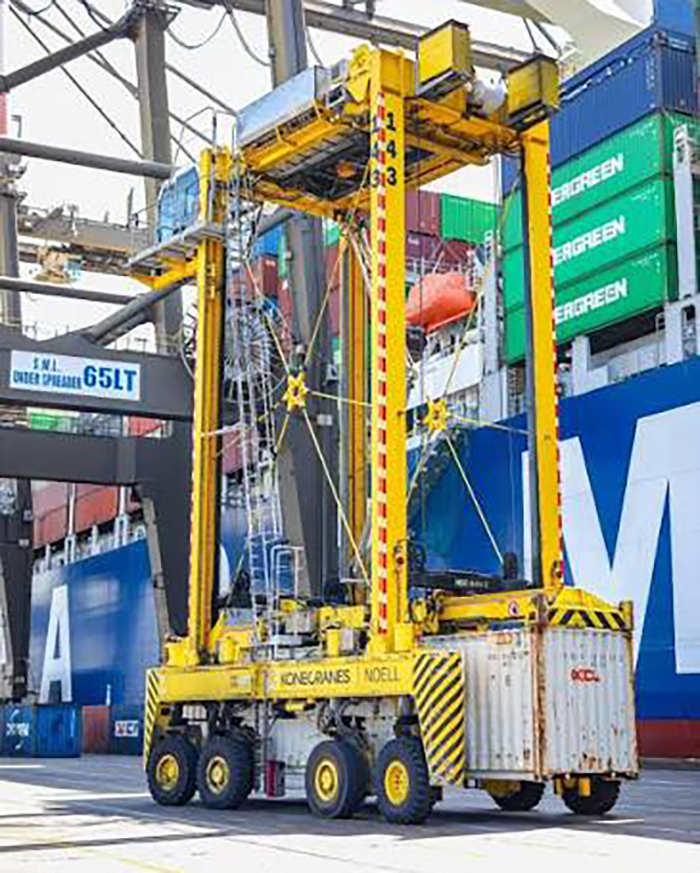Business
‘Sri Lanka needs GSP+ now more than ever following the pandemic’

By Felix Fernando
Much has been said of the potential economic costs to Sri Lanka, of losing the Generalised Scheme of Preferences (GSP) Plus trade concessions to the European Union (EU). While these costs will be high, the social and human costs are likely to be even greater.
Considering official statistics for 2021, available up to end November, the EU was Sri Lanka’s single largest export market for 2021, accounting for nearly a quarter (24.1%) of our total merchandise exports of US$ 11.1 billion.
Given the EU’s importance to Sri Lanka, the loss of preferential tariffs for Sri Lanka’s exports to the EU through GSP+ previously, in 2010, had a substantial adverse impact on our economy. This likely led to an increase in poverty and income inequality as per academic studies (for example, Bandara and Naranpanawa, 2014). At present, given the ramifications of the pandemic, the consequences of the loss of GSP+ could be far more dire, leading to increase in unemployment, poverty, vulnerability and inequality, as well as loss of improvements achieved in female empowerment.
According to the World Bank’s estimates, Sri Lanka’s poverty rate rose from 9.2% in 2019 to 11.7% in 2020, putting more than 500,000 additional people in poverty. The country’s poorest were disproportionately negatively affected. Adding to the woes stemming from the loss of income and livelihoods – especially by informal workers who account for around 70% of Sri Lanka’s labour force – the cost of living has soared in recent times. Inflation was at a 12-year high in December 2021, with food prices surging to levels that have led to fears regarding increase in malnutrition and hunger.
In such a scenario, the loss of GSP+ would be highly damaging. EU is a key market for some of Sri Lanka’s largest export industries including apparel, food exports and plastic and rubber exports. These sectors employ a substantial portion of our workforce and are also characterised by the heavy presence of small and medium enterprises (SMEs). In addition, the EU has been a significant contributor to the growth of some of these exports industries – for instance rubber-based exports and seafood.
For Sri Lanka’s biggest export industry, apparel, the EU is particularly critical, being the single largest market. The EU accounted for $2.2 billion or nearly half (43.6%) of the sector’s total export earnings for 2021. The apparel industry employs 350,000 workers in the country, of which nearly 80% are rural women. Female representation in the industry is more than double the national average, considering the share of women in Sri Lanka’s labour force. Therefore, if GSP+ is lost, vast improvements made in female economic empowerment and overall human capital could also be in jeopardy.
SMEs and family-owned businesses are also likely to be more severely affected if GSP+ is unavailable. Many apparel SMEs tend to depend on subcontracts from larger players, which will dry up if excess orders are not available due to loss of preferential access to key export markets. Earlier, when GSP+ concessions were removed in 2010, there were reports of several SME apparel factories being closed down, which also led to unemployment. Currently, SMEs account for approximately 45% or nearly half of Sri Lanka apparel manufacturing facilities and provide employment to around 50,000 employees.
Many apparel manufacturing facilities in the country are located outside urban areas and industrial zones and are crucial in generating rural employment. SMEs are particularly vital in this regard since due to their relatively smaller scale, which requires less workers, a high percentage of these factories are located in less-populated and lagging regions.
Many other sectors in the country rely on the apparel industry, given its heavy presence across the island. These include logistics and transport providers, raw material suppliers as well as small-scale businesses providing food and refreshments. In addition, several cottage industries, such as producers of carpets and pillow covers, depend on apparel factories in their neighbourhoods for raw material (in the form of waste fabric). If the industry is to suffer a downturn due to loss of GSP+, this entire economic ecosystem too will suffer adverse trickle-down effects.
In addition, the pandemic has led to global re-orientation of supply chains which Sri Lanka’s apparel sector is well-positioned to capitalise on. However, this requires easy access to exports markets, through trade arrangements such as GSP+. Export earnings, which generate foreign exchange, are also vital for Sri Lanka’s economic stability, as well as to meet our foreign debt obligations.
Hence, given these challenges and opportunity costs, Sri Lanka needs GSP+ now, perhaps more than ever before.
In discussions with the Government, the apparel industry and other export sectors have impressed upon the authorities the importance of retaining GSP+. These concerns have been met favourably by the authorities and the industry is hopeful of a positive outcome.
In addition to retaining GSP+ in the immediate future, it is important that Sri Lanka engages with the EU to enjoy the benefits of the new GSP+ facility, which will commence in 2024, replacing the existing scheme. Sri Lanka needs to be prepared to align itself with the 33 conventions of the new scheme, compared with the 26 conventions of the current GSP+ regime. It is critical that the policymakers and the authorities commence these preparations now.
In addition to GSP+, the apparel sector has also emphasised on the authorities the importance of low-tariff or tariff-free access to other key export destinations – such as USA, China, India (to which a quota applies for apparel exports from Sri Lanka), Japan and South Korea. The Government has responded favourably to these concerns and the industry is hopeful of a positive outcome. New Free Trade Agreements (FTAs) can provide a significant boost to expanding and diversifying Sri Lanka’s and the apparel industry’s export markets.
While these are critical at present, it is important to recognise that the apparel industry does not expect GSP+ concessions to remain indefinitely. We are mindful of the fact that the country will lose its trade concessions in the future, as we gradually transition to an upper middle-income nation.
With the assistance of other stakeholders, including the Sri Lankan Government, the apparel sector has commenced a series of concerted initiatives to prepare the industry for the potential loss of trade concessions in the future. These efforts are also aimed at transforming Sri Lanka into a global apparel hub, increase the sector’s competitiveness and diversify its export markets.
The foundation has already been laid in this regard. For instance, Sri Lanka has positioned itself as a leader in sustainable apparel manufacturing. Sri Lankan apparel producers have invested significantly in manufacturing facilities that incorporate the latest environmentally-friendly features – minimising wastage, energy, and emissions.
The apparel sector has also made progress in further strengthening human resource practices. Through the ‘Garments without Guilt’ initiative, many Sri Lankan factories voluntarily submitted themselves to independent audits of working conditions. In December 2021, the apparel industry also signed a historic agreement with trade unions, paving the way for greater transparency in employee control over dispute resolution and grievance handling.
In the long run, these initiatives can strengthen Sri Lanka’s apparel industry significantly and, by extension, the country’s export sector, reducing the need for trade concessions. However, if these concessions are removed now, the social and human costs are likely to be dire. Given the pandemic’s unprecedented impact, GSP+ to the EU is critical for Sri Lanka and its export sectors at present.
(Felix A. Fernando is the CEO of Alpha Apparels Ltd. and Sirio Ltd., and a Group Director of Omega Line, which ranks among Sri Lanka’s five largest apparel exporters. He holds a MBA from the Post Graduate Institute of Management (USJ), in addition to being a Fellow member of the Chartered Institute of Management Accountants, U.K. He has received extensive Executive Education at Harvard, The Wharton School, National University of Singapore and AOTS, Japan. Fernando is also the Deputy Chairman of the Joint Apparel Association Forum Sri Lanka and a Past Chairman of the Sri Lanka Apparel Exporters’ Association.)
Business
Flagship Colombo terminal held back by equipment tender failures

The Colombo East Container Terminal (CECT), Sri Lanka’s flagship port project under the Sri Lanka Ports Authority (SLPA), remains unable to reach full operational capacity, more than four years after construction began, industry insiders say. Despite near-complete infrastructure and a strategic vision to bolster Sri Lanka’s position as a regional maritime hub, the terminal is paralyzed by a single missing component: straddle carriers, essential machines for moving containers between ships and yard storage.
“The terminal is essentially ready. Quay cranes, yard cranes, automation systems, and supporting infrastructure are all in place. Only straddle carriers are missing, and without them, full-scale operations are impossible,” Tharanga Jayasinghe, President of the Port Finance Divisional Independent Employee Association, told journalists.
Addressing a press conference held in Colombo Jayasinghe said that the delay is not due to employee performance. “SLPA staff have delivered outstanding results at the Jaya Container Terminal and partial operations at CECT. The responsibility to bring CECT fully on track now lies squarely with SLPA management and the authorized decision-makers overseeing this strategic national investment.”
Since 2021, the procurement of straddle carriers has gone through five tender attempts, each canceled or revised, resulting in significant lost time. Early tenders focused on leasing the machines, then on diesel-powered carriers, before SLPA made a strategic shift to hybrid straddle carriers, in line with CECT’s green terminal vision and international shipping standards.
Despite this shift, delays have persisted due to what employees describe as “questionable technical decisions and favoritism toward predetermined bidders.” The third tender round, which allowed both diesel and hybrid options, drew particular criticism. A compliant hybrid bid offering superior lifecycle efficiency was overlooked in favor of a diesel-only supplier, prompting legal action. While the case was pending, SLPA revoked the award and canceled the fourth tender, further prolonging the project.
CECT, a nearly USD 1 billion investment entirely financed by SLPA, represents one of the largest infrastructure projects ever undertaken by a Sri Lankan company. Funded during the economic recession that began in 2021, it is considered a source of national pride. Yet, Jayasinghe warned that this pride is overshadowed by concerns over repeated procedural missteps and apparent favoritism.
The current, fifth tender has raised new alarm. Qualification criteria appear to have been significantly diluted, allowing a previously favored company—reportedly with limited experience—to re-enter the process. For approximately USD 50 million worth of 30 hybrid straddle carriers, bidder experience requirements have been reduced to manufacturing just 15 units over five years, a stark contrast to the standard benchmark of 500 units for equipment of this scale.
According to Jayasinghe, these relaxed criteria risk awarding the contract to an under-experienced supplier, potentially undermining CECT’s operational credibility and discouraging shipping lines from engaging with the terminal. Observers note that one internationally recognized supplier withdrew from the process, citing lack of transparency and perceived bias.
Industry insiders warn that delays at CECT are not merely operational concerns—they also create openings for competing regional ports to capture Sri Lanka’s container traffic. “The demand is ready, but the terminal’s readiness is being held back by indecision and procedural mismanagement,” Jayasinghe said.
SLPA employees, he added, have long safeguarded national port assets from corrupt practices. Their vigilance secured the East Container Terminal (ECT) in 2021, and today they are raising alarms over the CECT tender process. Commercially, SLPA continues to perform well, including a recent Rs. 5 billion transfer to the Government Consolidated Fund. Shipping lines remain eager to engage with CECT, underscoring that the challenge is not demand but readiness.
The unanswered questions are stark: why has a strategic national procurement repeatedly failed, who is promoting inexperienced suppliers, and who will be held accountable? Until these issues are addressed, CECT remains not merely delayed, but denied—its potential, strategic importance, and the trust of the nation hanging in the balance, Jayasinghe added.
by Chaminda Silva ✍️
Business
SOLA Festival Returns: Building a Long-Term Model for Conscious Festival Culture

SOLA Festival returns to Sri Lanka’s south coast as an evolving cultural movement, continuing its mission to redefine festivals through community collaboration, sustainability, and conscious design. The festival will take place on the 30th and 31st of January at The Doctor’s House, Madiha.
Developed in close partnership with the local community in Madiha, near The Doctor’s House, where the festival has established its home, the SOLA Festival was conceived as a response to the increasingly extractive nature of tourism, which too often takes more from local communities than it gives back. The festival is guided by the core values of Respect, Inclusion, Sustainability, Creativity, and Collaboration, bringing people together through music, workshops, immersive experiences, and community-led initiatives.
Founded by a collective of designers and event makers from Copenhagen, SOLA aims to become one of the first fully waste-free and circular festivals in Asia and a global role model for sustainable events. Chief festival organisers, designers Susanna and Miranda, whose portfolio includes installations and designs for Copenhagen Fashion Week as well as projects with Collective Fashion Justice, explained that the idea for the festival was inspired by how incredibly warmly they were welcomed into the local community in Sri Lanka and their desire to give back and support that community “We started SOLA to show that festivals can bring joy, creativity, and music while also giving back to the communities and environments that host them,” says Susanna. “SOLA was conceptualized and created with a strong focus on working in harmony with nature and fostering meaningful community connections. Together with ouramazing partners, we want to prove that conscious, community-led events are not only possible, but inspiring, joyful, and sustainable.”
Following its inaugural edition in 2025, SOLA Festival has positioned itself as an annual event in Sri Lanka, growing thoughtfully each year with a long-term vision rather than as a one-off project. The 2025 edition welcomed 800 guests, featured international and local DJs, and hosted five activities and workshops, laying a strong foundation for the festival’s future direction.
This year, the festival is looking to nearly double the number of attendants, and will feature over a dozen DJs from more than five countries including internationally renowned Yung Singh, and local legend DJ Shiyam.
More than a music festival, SOLA is a multidimensional platform for art, learning, sustainability, and connection, and in keeping with this vision, the programme also includes traditional, community centric, creative activities including communal weaving sessions, natural dye workshops, drum circles, beaded fabric jewellery workshops, make-your-own merch sessions and more.
SOLA is being developed within the principles of a circular economy, and the organisers view SOLA as a project to be built and refined over many years, with each edition deepening its impact. As the festival grows, SOLA aims to involve more local and international collaborators, with the goal of becoming an international role model for sustainable events.
Sri Lanka’s long-standing values around craftsmanship, resourcefulness, and care for the earth are central to this vision. The team believes the country has the potential to become a global leader in sustainable tourism.
Community collaboration remains at the heart of the festival’s programming. For the upcoming dition, SOLA is working with a growing network of partners, including ApiHappi, Selyn Fairtrade, Sarana Sri Lanka and Sambol Foundation. The official banking partner for the event is Hatton Nation Bank.
The SOLA team, together with a local school and WeCare will conduct a beach clean-up ahead of the festival. Post the clean-up, the children will participate in a crafting session focusing on recycling and upcycling everyday waste, while learning about plastic and street dogs. Sambol Foundation will host a natural dye workshop before the festival and the fabrics will be used for festival installations. Selyn Fairtrade, House of Lonali and ApiHappi, will contribute fabric that local women will use to make reusable decorations for the event, ensuring the festival avoids purchasing all new materials in the future. Selyn has also taken on producing festival merchandise and running a fabric bead workshop. The festival will open with a traditional Sri Lankan fire ceremony, organised in collaboration with Sarana Sri Lanka. SOLA will also organize a fundraiser in collaboration with WeCare, an organisation dedicated to the wellbeing of local street dogs.
Business
HNB Assurance PLC Recognized Among Sri Lanka’s Best 20 Workplaces for Women 2025

HNB Assurance PLC was recognized among Sri Lanka’s Best 20 Workplaces for Women 2025 by Great Place to Work Sri Lanka, for the Company’s long-standing commitment to fostering an empowering workplace for women.
Over the years, HNB Assurance has introduced several progressive initiatives to support women at different life and career stages, including flexible work arrangements, caregiver and maternity support, leadership development programs, and platforms such as in.she, which champions women’s growth both professionally and personally. These efforts have contributed to a workplace where women are not only represented but are actively enabled to succeed.
Commenting on the recognition, the Executive Director / Chief Executive Officer of HNB Assurance PLC, Lasitha Wimalaratne stated, “Being recognized among Sri Lanka’s Best 20 Workplaces for Women is a powerful affirmation of who we are as an organization. At HNB Assurance, inclusion is not an initiative, it is a mindset embedded into how we make decisions and how we care for our people. We firmly believe that when women are empowered, organizations become stronger. This recognition belongs to every woman contributes to our culture every day.”
Navin Rupasinghe, Head of Human Resources / DGM of HNB Assurance PLC stated “This recognition reflects years of intentional effort to build a workplace where women feel heard and inspired to reach their full potential. From flexible policies to leadership pathways and a deeply people-centric culture, we have focused on creating an environment where women can grow without compromise. We are proud of how far we have come and remain committed to continuously raising the bar. Lastly, I’d like to thank Great Place to Work for this recognition as it motivates us to keep evolving our people practices and building a workplace where women can grow.
-

 Features7 days ago
Features7 days agoExtended mind thesis:A Buddhist perspective
-

 Opinion6 days ago
Opinion6 days agoAmerican rulers’ hatred for Venezuela and its leaders
-

 Business15 hours ago
Business15 hours agoComBank advances ForwardTogether agenda with event on sustainable business transformation
-

 Business4 days ago
Business4 days agoCORALL Conservation Trust Fund – a historic first for SL
-

 Opinion4 days ago
Opinion4 days agoRemembering Cedric, who helped neutralise LTTE terrorism
-

 Opinion3 days ago
Opinion3 days agoA puppet show?
-

 Opinion6 days ago
Opinion6 days agoHistory of St. Sebastian’s National Shrine Kandana
-

 Features5 days ago
Features5 days agoThe middle-class money trap: Why looking rich keeps Sri Lankans poor













